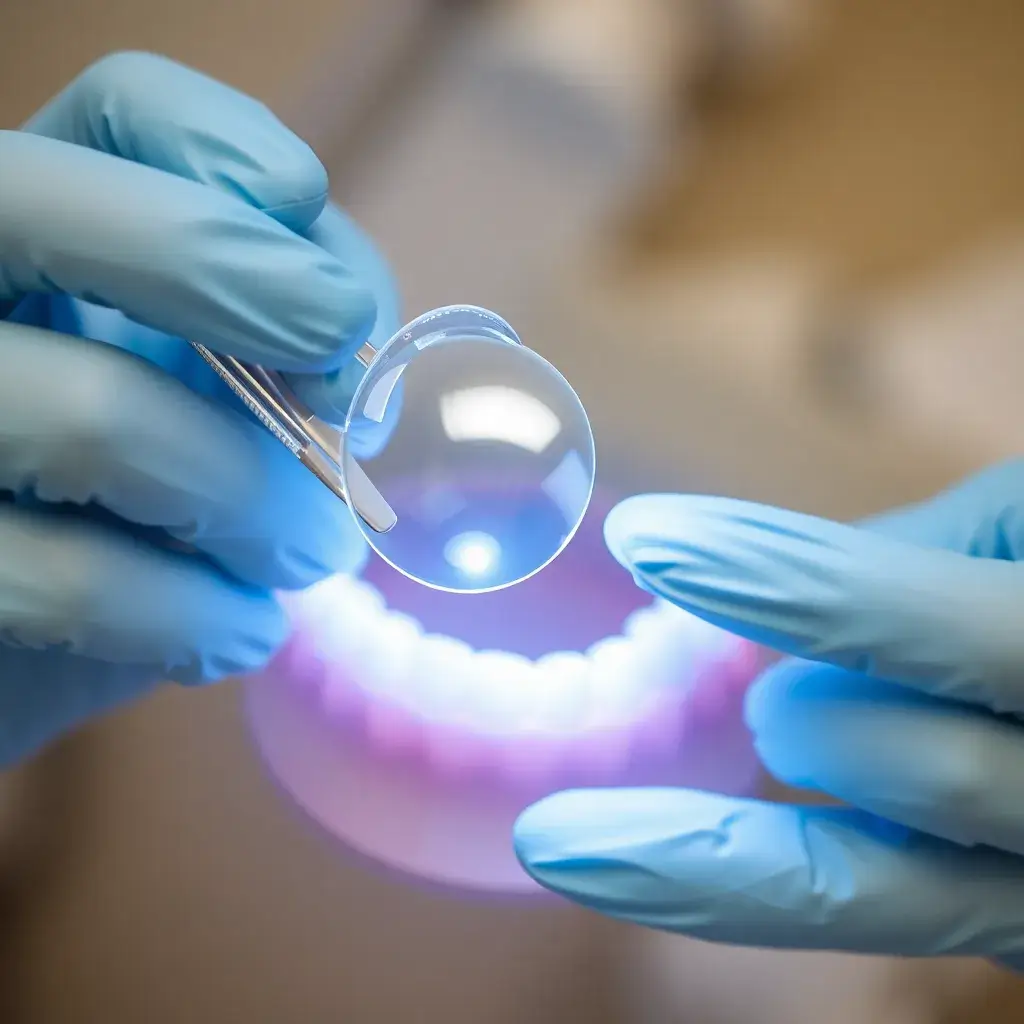
Contact Lens & Dental Manufacturing
The manufacturing of contact lenses and dental materials is an increasingly dynamic field, driven by continuous innovations in materials and production techniques aimed at enhancing both ophthalmic and oral health. By partnering with us, you gain access to high-quality raw materials, ensuring robust supply chain security from the initial scale-up phase through to full production. We offer flexible options for bulk supply and customization, tailored to meet the specific needs of your projects, helping to streamline the development process and ensure the delivery of superior products.
Overview
Contact Lens Manufacturing
Contact lenses are specialized ophthalmic prosthetic devices designed to correct vision, aid in therapeutic treatments, and provide cosmetic enhancements. These lenses are typically made from advanced materials such as polymers and silicone hydrogels, which are selected for their superior oxygen and water permeability, ensuring comfort and eye health. The choice of materials also plays a critical role in determining other important properties such as surface smoothness, UV radiation absorption, and resistance to tearing or surface defects, all of which contribute to the durability and functionality of the lenses. With the advancement of precision manufacturing technologies, various techniques such as molding, lathe cutting, and plasma processing are employed to fine-tune the properties of contact lenses for specific needs. Current research efforts are primarily focused on developing innovative monomers, new polymer chemistries, and enhanced manufacturing methods aimed at minimizing the risk of infection and inflammation. These developments also aim to further improve consumer comfort, safety, and the overall performance of contact lenses, ensuring they meet evolving demands in the field of vision correction.
Dental Manufacturing
The field of dental medicine is dedicated to maintaining oral health, preventing and treating oral diseases, and correcting issues such as teeth and jaw misalignment. Dental manufacturing involves a range of techniques and materials used to create products and devices essential for modern dental practices. This includes solid-state and polymeric synthesis methods, as well as various processing and surface functionalization approaches. Materials used in dental applications include resin-based composites for fillings, caps, crowns, and bridges, as well as glass ionomers and alloys for restorative dental procedures. Dental impressions are typically made using alginate materials, which form accurate negative molds of teeth and soft tissues for 3D modeling. In the realm of aesthetic dental care, peroxide compounds are used for teeth whitening, while porcelain veneers are bonded to teeth using light-cured resin cements.
Research in dental materials is focused on developing next-generation monomers that improve flexibility, durability, biocompatibility, and antimicrobial properties, all of which are crucial for enhancing the lifespan and performance of dental products. Furthermore, the advent of computer-aided design (CAD) and computer-aided manufacturing (CAM) technologies has revolutionized the production of custom dental devices, such as dentures, dental implants, and orthodontic appliances. These innovations allow for quicker, more cost-effective production of personalized dental devices through advanced 3D printing methods, offering both precision and affordability for patients and healthcare providers alike.